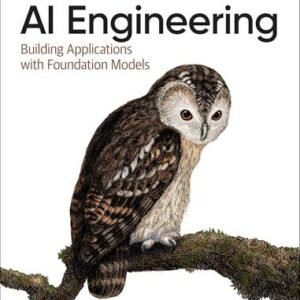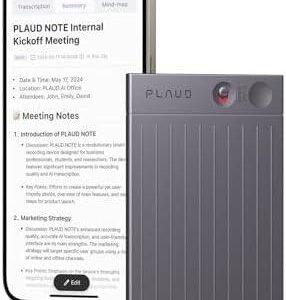In today’s fast-paced digital landscape, businesses are constantly seeking innovative ways to enhance their marketing strategies and connect with their audience more effectively. Enter artificial intelligence (AI) — a game-changing technology that is not just a buzzword but a powerful ally in the realm of marketing automation. From predictive analytics that refine targeting to chatbots that provide immediate customer engagement, AI tools are revolutionizing how marketers approach their campaigns and streamline their processes. In this article, we will explore the essential AI tools that are reshaping the marketing automation landscape today, empowering marketers to increase efficiency, personalize experiences, and ultimately drive revenue like never before. Join us as we delve into the features, benefits, and real-world applications of these cutting-edge technologies that are poised to transform the future of marketing.
Table of Contents
- Key AI Technologies Transforming Marketing Automation Workflows
- Enhancing Customer Engagement with Predictive Analytics
- Optimizing Campaign Performance through Machine Learning Insights
- Integrating AI-driven Tools for Seamless Marketing Ecosystems
- Final Thoughts
Key AI Technologies Transforming Marketing Automation Workflows
Artificial Intelligence is swiftly redefining the landscape of marketing automation. With capabilities that streamline workflow and enhance user experience, key AI technologies are becoming indispensable for marketers. Predictive Analytics tools now leverage vast amounts of consumer data to forecast buying behaviors, enabling businesses to tailor their campaigns more effectively. Additionally, Natural Language Processing (NLP) allows for superior audience engagement through intelligent chatbots and personalized email content, ensuring that brands can communicate with their customers in a more human-like manner.
Moreover, Machine Learning algorithms play a vital role in optimizing advertising campaigns by analyzing real-time data and user interactions, thus fine-tuning ad placements and ensuring higher conversion rates. The integration of AI-driven Content Creation tools empowers marketers to generate relevant content at scale while maintaining quality, providing them with the agility needed in today’s fast-paced market. To further illustrate the impact of these technologies, consider the following table that highlights some of the leading AI tools currently revolutionizing marketing automation:
| AI Tool | Description | Key Benefit |
|---|---|---|
| HubSpot | Comprehensive marketing automation platform with AI features | Enhanced lead scoring and segmentation |
| Marketo | Cloud-based marketing automation software | Advanced predictive analytics |
| Pendo | Product and user experience analytics | Improved user engagement through insights |
Enhancing Customer Engagement with Predictive Analytics
Predictive analytics has transformed the landscape of customer engagement by leveraging data to forecast future behaviors and preferences. By analyzing past interactions and purchasing patterns, businesses can tailor their marketing strategies to meet the specific needs of their audience. This results in a more personalized experience, making customers feel valued and understood, which ultimately fosters loyalty. Some key benefits include:
- Customer Segmentation: Identify distinct groups within your customer base to create targeted campaigns.
- Content Optimization: Determine which content resonates best with various demographics, enhancing engagement rates.
- Churn Prediction: Anticipate potential customer attrition and implement proactive measures to retain them.
Integrating predictive analytics into your marketing automation tools allows for real-time adjustments and proactive customer service. These systems can offer insights into optimal timing for outreach and recommend the most effective channels for communication. Below is a simple overview of how predictive analytics can enhance marketing strategies:
| Feature | Benefit |
|---|---|
| Data Analysis | Informs decision-making with actionable insights. |
| Behavior Tracking | Monitors customer interactions to optimize engagement. |
| Automated Responses | Delivers timely communications based on user actions. |
Optimizing Campaign Performance through Machine Learning Insights
In the age of digital marketing, leveraging machine learning algorithms has emerged as a game-changer for optimizing campaign performance. Real-time data analysis enables marketers to identify trends, predict customer behaviour, and personalize messaging to maximize engagement. By implementing predictive analytics, brands can forecast which marketing strategies will yield the highest ROI, continuously refining their approach based on ongoing performance metrics. Key machine learning capabilities transforming campaign strategies include:
- Customer Segmentation: Automated grouping of audiences based on behaviour and preferences.
- Churn Prediction: Identifying at-risk customers to proactively engage and retain them.
- Content Optimization: Tailoring content delivery based on user interactions and preferences.
- Ad Spend Optimization: Analyzing which channels and tactics generate the most leads or conversions.
Moreover, the integration of machine learning into marketing automation tools allows for enhanced A/B testing and campaign management. Instead of relying on gut feelings or historical data alone, marketers can utilize algorithms to determine the most effective messaging, designs, and placements to increase conversion rates significantly. Consider a simple comparison of two variables influencing campaign success:
| Variable | Impact on Campaign |
|---|---|
| Target Audience | Direct correlation with engagement levels and conversion rates. |
| Timing of Delivery | Critical in capturing audience attention and responses. |
Integrating AI-driven Tools for Seamless Marketing Ecosystems
In today’s fast-paced digital landscape, integrating AI-driven tools into marketing strategies is essential for creating cohesive ecosystems that enhance customer engagement and streamline workflows. These tools offer marketers the ability to harness data analytics and machine learning algorithms to automate repetitive tasks, enabling them to focus on strategic initiatives. By utilizing AI-powered platforms, companies can refine their targeting efforts, analyze customer behaviors, and personalize content like never before. Popular solutions, including chatbots, predictive analytics, and social media automation, are becoming integral to successful marketing campaigns.
Moreover, collaboration and integration are key in maximizing the potential of these AI tools. Marketers can now leverage platforms that seamlessly connect various functions—such as content management, email marketing, and customer relationship management (CRM)—to work in harmony. By creating a unified marketing architecture, businesses can ensure that their messaging is consistent, leads are nurtured effectively, and customer insights are shared across teams. The implementation of AI-driven technologies not only streamlines processes but also elevates the overall marketing effectiveness, providing companies with a competitive edge in an ever-evolving market.
Final Thoughts
As we navigate through the rapidly evolving landscape of marketing automation, it’s clear that artificial intelligence tools are not just enhancing processes—they’re redefining what’s possible. From predictive analytics that enable hyper-targeted campaigns to chatbots that deliver personalized customer experiences 24/7, AI is becoming an indispensable ally for marketers looking to stay ahead of the curve.
Adopting these innovative tools will not only streamline your marketing efforts but also empower you to make data-driven decisions that resonate with your audience. As you explore these essential AI solutions, remember that the key to success lies in understanding your unique business needs and integrating technology that complements your strategy.
In this age of digital transformation, embracing AI in marketing is no longer an option; it’s a necessity. By leveraging the right tools, you can unlock new levels of efficiency and creativity, ultimately driving growth and enhancing customer satisfaction.
As you implement these AI-driven solutions, stay curious and open to emerging technologies that can further enhance your marketing capabilities. The world of AI is continuously changing, and with it, the potential for your marketing strategies only grows. Here’s to a future where marketing automation is smarter, more effective, and incredibly impactful!





